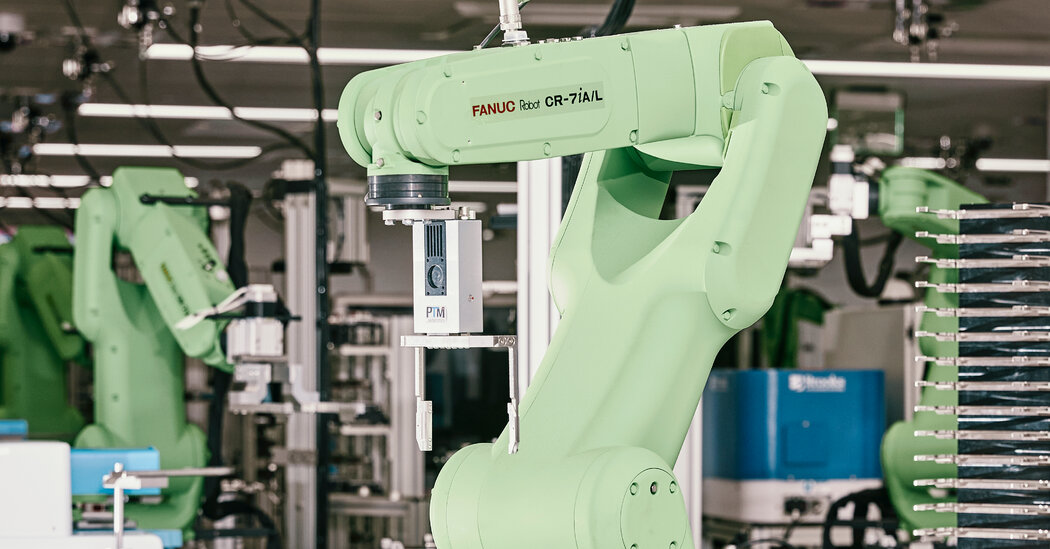

Ginkgo is encouraging new biotech start-ups to piggyback on its technology, much as tech start-ups use Amazon Web Services to supply their underlying computing and data storage. Motif Foodworks, founded in 2018, is one. It makes ingredients for plant-based alternatives to meat and dairy products, and it relies on Ginkgo to provide yeast strains that enhance flavor or texture.
Ginkgo collects money in different ways, including fees for use, royalties and equity stakes, depending on the customer. Revenue from its foundry business grew 40 percent in the first half of 2021 and is expected to reach $100 million for the year. By the end of last year, the Ginkgo labs had completed or were working on a total of 74 cell projects. This year alone, they are on track to add 30 more.
“The business model is starting to prove itself,” Mr. Kelly said.
In a filing for investors, Ginkgo said its foundry business should break even by 2024 or 2025, though that excludes returns on equity investments and royalties, which are beginning to trickle in.
Ginkgo, by all accounts, is an innovative leader in synthetic biology. “It embodies the vision of the field — to industrialize biology,” said Mr. Cumbers of SynBioBeta.
While Ginkgo is aiming to automate broad swaths of biology, the field is still largely hand craftsmanship. An estimated $33 billion was spent globally last year on cell engineering research by universities, government labs, biotech companies and large corporations. More than 60 percent of the spending was on labor with the rest for equipment, reagents and other materials. The labor share for Ginkgo projects is about 30 percent, the company says.
The question is how much demand there will be, and how soon, for Ginkgo’s computer-style technology platform. The company and its investors are betting its moment has arrived. Ginkgo is raising more than $1.6 billion to further expand its automated biology foundry by going public through a special-purpose acquisition company.
The SPAC market has been volatile recently. But its investors express confidence that the deal, which values Ginkgo at about $15 billion, will prove to be a good one for both the company and its backers in the long term.
“The Ginkgo team has spent years building out this technology,” said Bill Ford, chief executive of General Atlantic, the investment firm and Ginkgo backer. “It has a lead, and we’re in the infancy of synthetic biology.”
24World Media does not take any responsibility of the information you see on this page. The content this page contains is from independent third-party content provider. If you have any concerns regarding the content, please free to write us here: contact@24worldmedia.com

Common Mistakes When Using Athletic Field Tarps

High-Performance Diesel Truck Upgrades You Should Consider

Warehouse Optimization Tips To Improve Performance

Fire Hazards in Daily Life: The Most Common Ignition Sources

Yellowstone’s Wolves: A Debate Over Their Role in the Park’s Ecosystem

Earth Day 2024: A Look at 3 Places Adapting Quickly to Fight Climate Change

Millions of Girls in Africa Will Miss HPV Shots After Merck Production Problem

This Lava Tube in Saudi Arabia Has Been a Human Refuge for 7,000 Years

Four Wild Ways to Save the Koala (That Just Might Work)

National Academy Asks Court to Strip Sackler Name From Endowment

Ways Industrial Copper Helps Energy Production

The Ins and Out of Industrial Conveyor Belts